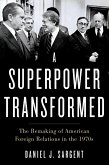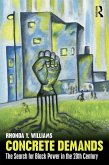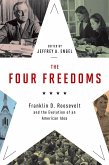On November 10, 1975, the General Assembly of United Nations passed Resolution 3379, which declared Zionism a form of racism. Afterward, a tall man with long, graying hair, horned-rim glasses, and a bowtie stood to speak. He pronounced his words with the rounded tones of a Harvard academic, but his voice shook with outrage: "The United States rises to declare, before the General Assembly of the United Nations, and before the world, that it does not acknowledge, it will not abide by, it will never acquiesce in this infamous act." This speech made Daniel Patrick Moynihan, the U.S. ambassador to the United Nations, a celebrity, but as Gil Troy demonstrates in this compelling new book, it also marked the rise of neo-conservatism in American politics--the start of a more confrontational, national-interest-driven foreign policy that turned away from Kissinger's détente-driven approach to the Soviet Union--which was behind Resolution 3379. Moynihan recognized the resolution for what it was: an attack on Israel and a totalitarian assault against democracy, motivated by anti-Semitism and anti-Americanism. While Washington distanced itself from Moynihan, the public responded enthusiastically: American Jews rallied in support of Israel. Civil rights leaders cheered. The speech cost Moynihan his job--but soon won him a U.S. Senate seat. Troy examines the events leading up to the resolution, vividly recounts Moynihan's speech, and traces its impact in intellectual circles, policy making, international relations, and electoral politics in the ensuing decades. The mid-1970s represent a low-water mark of American self-confidence, as the country, mired in an economic slump, struggled with the legacy of Watergate and the humiliation of Vietnam. Moynihan's Moment captures a turning point, when the rhetoric began to change and a more muscular foreign policy began to find expression, a policy that continues to shape international relations to this day.
Dieser Download kann aus rechtlichen Gründen nur mit Rechnungsadresse in A, B, BG, CY, CZ, D, DK, EW, E, FIN, F, GR, HR, H, IRL, I, LT, L, LR, M, NL, PL, P, R, S, SLO, SK ausgeliefert werden.









